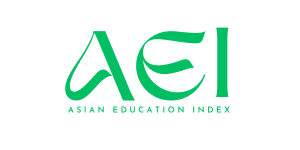Сhange in mentality towards disabled people in Сentral Asia
Keywords:
Avesto, vendidat, poor, blindAbstract
In early societies, the disabled occupied the position of flawed, inferior, poor people: they were considered a burden, people unable to benefit. But before the Zorastrian religion, the idea of physical defects was understood as a punishment for sins or as a sign of possession by evil spirits. This attitude towards the disabled often led to the fact that they were shunned, feared and considered outcasts of society. The daily lifestyle of people with physical and mental disabilities in those days turned into restriction and isolation, their exclusion from normal life, labor relations, creative spheres. This article is about the tolerant attitude of people to the disabled. This is done in the Avestan meaning in relation to persons with disabilities. Since ancient times, people in the east have been treated with tolerance. The nature of the attitude towards disability and the life of each nation is based on the mentality and religious relations of this nation.In particular, in Central Asia in ancient times, human life was determined on the basis of religious beliefs. For example, there was a pre-Islamic religion Zorastrianism. It has the words "good thoughts, good words, good work." This is proof of a tolerant attitude towards disabled people. The Holy Book of Zoroastrianism in Avesto also calls for tolerance attitude.
References
Халикулова, Хулкар Юлдашевна. "Государственная политика Узбекистана в сфере поддержки инвалидов." Актуальные вопросы современной науки и образования (2016): 99-102.
Халикулова, Хулкар Юлдашевна. "Функционирование дошкольных учреждений для детей с ограниченными возможностями (1991-2013 гг.)." Вестник науки и образования 10 (22) (2016).
Халикулова, Хулкар Юлдашевна. "История развития толерантного отношения к инвалидам на основе изучения письменных источников восточных мыслителей Средней Азии." Проблемы современной науки и образования 12 (54) (2016).
Халикулова, Х. Ю. "ИСЛАМ И ТРАДИЦИОННЫЕ ЦЕННОСТИ В ОТНОШЕНИИ К СОЦИАЛЬНО УЯЗВИМЫМ СЛОЯМ НАСЕЛЕНИЯ." Идеалы и ценности ислама в образовательном пространстве XXI века (2016): 257-259.
Халикулова, Хулкар Юлдашевна. "ОБРАЗОВАНИЕ ДЕТЕЙ В СПЕЦИАЛИЗИРОВАННЫХ ШКОЛАХ И ШКОЛАХ ИНТЕРНАТАХ (1991-2014Г)." Theoretical & Applied Science 5 (2016): 40-43.
Xulkar, Xolikulova. "Social protection of people with disabilities in Uzbekistan after State Independence." Humanities and Social Sciences in Europe: Achievements and Perspectives (2015): 29.
Downloads
Published
Issue
Section
License

This work is licensed under a Creative Commons Attribution-NonCommercial 4.0 International License.
User Rights
Under the Creative Commons Attribution-NonCommercial 4.0 International (CC-BY-NC), the author (s) and users are free to share (copy, distribute and transmit the contribution).
Rights of Authors
Authors retain the following rights:
1. Copyright and other proprietary rights relating to the article, such as patent rights,
2. the right to use the substance of the article in future works, including lectures and books,
3. the right to reproduce the article for own purposes, provided the copies are not offered for sale,
4. the right to self-archive the article.














